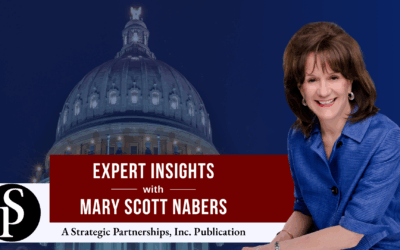Cyberattacks, data breaches and ransomware demands have become almost common in the public sector. Cyberattacks on critical government networks have become a huge problem for public officials. The stress this creates for chief technology officers (CIOs) is great and because of that, most are very receptive to collaborative efforts with private-sector partners.
CIOs today must find ways to deal with an historic digital revolution where data is so abundant it must be stored in the cloud. Additionally, citizens want online transactions, access to data 24/7, applications for digital devices and online voting. Because most public-sector entities have old technology that simply cannot keep pace with private-sector capabilities, the difficulty of having to deal with all of these issues is extreme.
Almost every state has suffered a major data breach over the recent past. Hiring IT experts gets harder each year because of intense competition from private-sector firms that offer larger salaries because they, too, must protect their data networks. Last month, 21 states were told by the Department of Homeland Security that there had been Russia-affiliated efforts to hack their election systems. That alone is frightening enough to make technology gurus shy away from government job postings.

Georgia is developing a new $50 million Cyber Innovation and Training Center where cyber workforce skills will be taught. The state launched a collaborative effort that includes more than two-dozen public entities, economic development organizations, state and federal agencies, universities and private-sector firms. The project will be completed in 2018.
The Iowa Communications Network, a state agency, is both a network provider and an Internet Service Provider. It makes advanced security products available to users in the fields of education, government, public safety and health care. The suite of services offered includes firewall management, advanced threat protection and anti-malware services.
California recently launched a Security Operations Center that provides protection against detection of and response to cyberattacks targeting the California Government Enterprise Network and IT systems owned or managed by the Center. It will operate 24/7 every day of the year monitoring for malicious activity. This, too, is a collaborative effort.
According to the latest survey, state CIOs listed the following as their most pressing issues:
- They want to learn more about emerging technology, especially solutions that relate to the Internet of Things (IoT) and unmanned aerial systems. Forty-three percent said IoT is likely to have the greatest impact on government technology over the next three to five years.
- Moving data to the cloud for storage is common and therefore all CIOs are interested in best practices for mitigation and security once the data has been moved off of old legacy systems.
- Finding and keeping qualified talent is a common problem for all IT divisions. Baby Boomers are retiring and replacements are Millennials who don’t always appreciate government culture. CIOs appear to be coping by launching various types of “out of the box” strategies to attract the younger workers.
Private-sector firms with technology solutions, collaborative ideas and new products will find most CIOs interested in talking. In the very rapidly changing world of technology, collaboration will definitely become the norm. That’s a good thing for citizens and taxpayers.
Strategic Partnerships, Inc. is one of the leading procurement consulting companies in the U.S. Contact them today to learn how to increase your public sector sales






